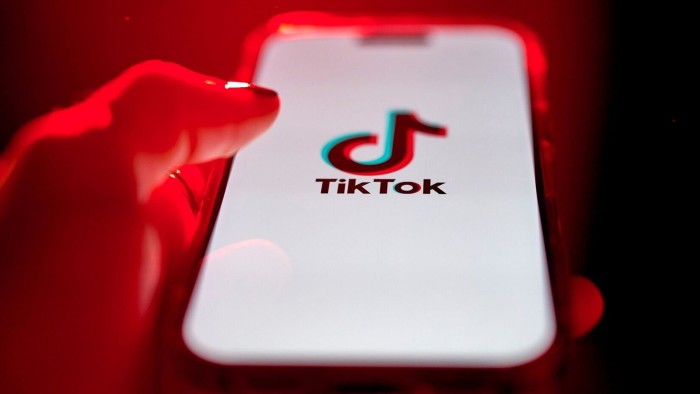The US Supreme Court has upheld a divest-or-ban law targeting TikTok, leaving the video app warning of an imminent blackout for its 170mn US users and putting its fate in the hands of president-elect Donald Trump.
The law compels TikTok’s Chinese parent ByteDance to sell the platform by January 19 — the day before Trump returns as US president — or face a nationwide ban.
“There is no doubt that, for more than 170mn Americans, TikTok offers a distinctive and expansive outlet for expression, means of engagement, and source of community,” the Supreme Court wrote in a unanimous opinion published on Friday.
“But Congress has determined that divestiture is necessary to address its well-supported national security concerns regarding TikTok’s data collection practices and relationship with a foreign adversary,” it added.
Following the ruling, Joe Biden’s administration said the outgoing president would not enforce the ban during his remaining days in office.
“Given the sheer fact of timing, this administration recognises that actions to implement the law simply must fall to the next administration, which takes office on Monday,” the White House said.
But TikTok late on Friday said statements from the White House as well as from the Department of Justice had “failed to provide the necessary clarity and assurance to the service providers that are integral to maintaining TikTok’s availability” in the US.
It added: “Unless the Biden administration immediately provides a definitive statement to satisfy the most critical service providers assuring non-enforcement, unfortunately TikTok will be forced to go dark on January 19.”
Under the terms of the law, without a sale, it will be unlawful for companies to provide services to distribute or host the video app, or they will face fines of $5,000 per user.
It remains unclear whether tech groups such as Apple, Google and Oracle, which offer such services to TikTok in the US, would take the risk of continuing to partner with the company over the weekend. It is also unclear whether the app could also take itself offline deliberately, to protect its partners.
Apple, Google and Oracle did not respond to requests for comment.
Trump said in a post on Truth Social after the ruling that his “decision on TikTok will be made in the not too distant future, but I must have time to review the situation”, adding that the court’s decision was “expected, and everyone must respect it”.
In a video posted on TikTok following the court’s decision, the group’s chief executive Shou Zi Chew gave no reassurances on whether the app would continue to function in the US on Sunday, but lavished Trump with praise.
“I want to thank president Trump for his commitment to work with us to find a solution that keeps TikTok available in the United States. This is a strong stand for the First Amendment and against arbitrary censorship,” he said, adding the president-elect “truly understands” the platform.
US attorney-general Merrick Garland said the court’s decision “enables the justice department to prevent the Chinese government from weaponising TikTok to undermine America’s national security”.
Deputy US attorney-general Lisa Monaco said the “next phase of this effort — implementing and ensuring compliance with the law after it goes into effect on January 19 — will be a process that plays out over time”.
TikTok has said any spin-off would be technologically unfeasible, while Beijing has indicated it would oppose any sale.
The court’s ruling was handed down shortly after Trump on Friday said he had discussed TikTok on a call with China’s President Xi Jinping. It was the first call between the leaders in four years.
The Supreme Court’s ruling upholds one of the boldest legislative moves of Biden’s term just days before the Democratic president leaves the White House.
On Thursday, Trump’s incoming national security adviser Mike Waltz said the legislation “allows for an extension as long as a viable deal is on the table. Essentially that buys president Trump time to keep TikTok going”.
Chinese officials have held preliminary discussions about whether billionaire Elon Musk — now a close ally of Trump — could broker a deal for the app’s sale, the Financial Times reported this week.
Some potential buyers and partners have been circling and lobbying Trump. These include Frank McCourt, an American media and sports businessman, who has established a consortium of investors that would bid for TikTok through his non-profit entity, Project Liberty.
TikTok chief Chew has mounted a charm offensive to cement Trump’s backing, including plans to attend a “victory rally” for the president-elect in Washington on Sunday and his inauguration on Monday, said two people familiar with the matter.
Concerns Beijing could use the app for espionage or to spread propaganda spurred the law, which was passed with strong bipartisan support last year.
Even though China “has not yet leveraged its relationship with ByteDance Ltd to access US TikTok users’ data”, the top court said, there was “no basis for concluding that the government’s determination that China might do so is not at least a ‘reasonable inferenc[e] based on substantial evidence’.”
TikTok asked the Supreme Court to hear its case after a US appeals court rejected its challenge to the law, as well as its subsequent request to halt the measure pending further court proceedings.
The company sought to throw out the law by arguing it was unconstitutional and it violated First Amendment protections for free speech.
Additional reporting by Aime Williams in Washington and Stephen Morris and Michael Acton in San Francisco
Read the full article here




